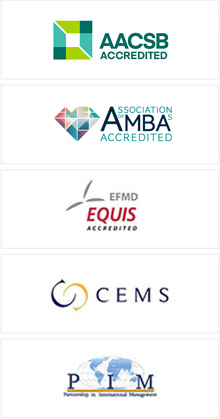Words are also tools in strategy work: the use of central concepts influences strategic sensemaking
New study shows how managers in a city organization used the concept “self-responsibility” to make sense of environmental challenges and promote strategic change.
Strategic Concepts As Micro-level Tools In Strategic Sensemaking
To understand strategies companies adopt, it is important to look into strategic sensemaking processes: how managers continuously observe and interpret their environment, and formulate their responses accordingly. Three researchers at Aalto University argue that a central part of this is the repeated use of central words or phrases to make sense of changes taking place in their environment and industry. Their new study focuses on such strategic concepts as important tools in strategy work, and examines how they help managers make sense during strategy work.
Top managers must adopt and adapt new vocabulary
The study followed the use of strategic concepts in the strategy work of a Finnish city organization over the course of 13 years. The findings show how managers and politicians adopted and defined new terminology, and used it to legitimize a broad strategic change in the organization, leading to long-lasting changes in decision making.
For management practice, the study illustrates that top managers must adopt and adapt new vocabulary to enable their organizations to understand and respond to environmental changes. Strategic renewal is best served by concepts that are ambiguous enough to accommodate diverse observations and facilitate the formation of diverse strategic ideas. Yet, concepts should not be overly broad and ambiguous (e.g. ’digitalization’ or ‘sustainability,’ when used alone), or they will provide too little structure for interpretations and strategy.
In terms of research, the article adds to the understanding of strategy work by linking strategic concepts as discursive resources to the on-going strategic sensemaking process and organization-level outcomes. The analysis also adds to studies on strategic ambiguity and advances research on vocabularies.
The article, coauthored by Kari Jalonen, Henri Schildt (Aalto Sci, Department of Industrial Engineering), and Eero Vaara (Aalto Biz, Department of Management Studies) is published in Strategic Management Journal.



